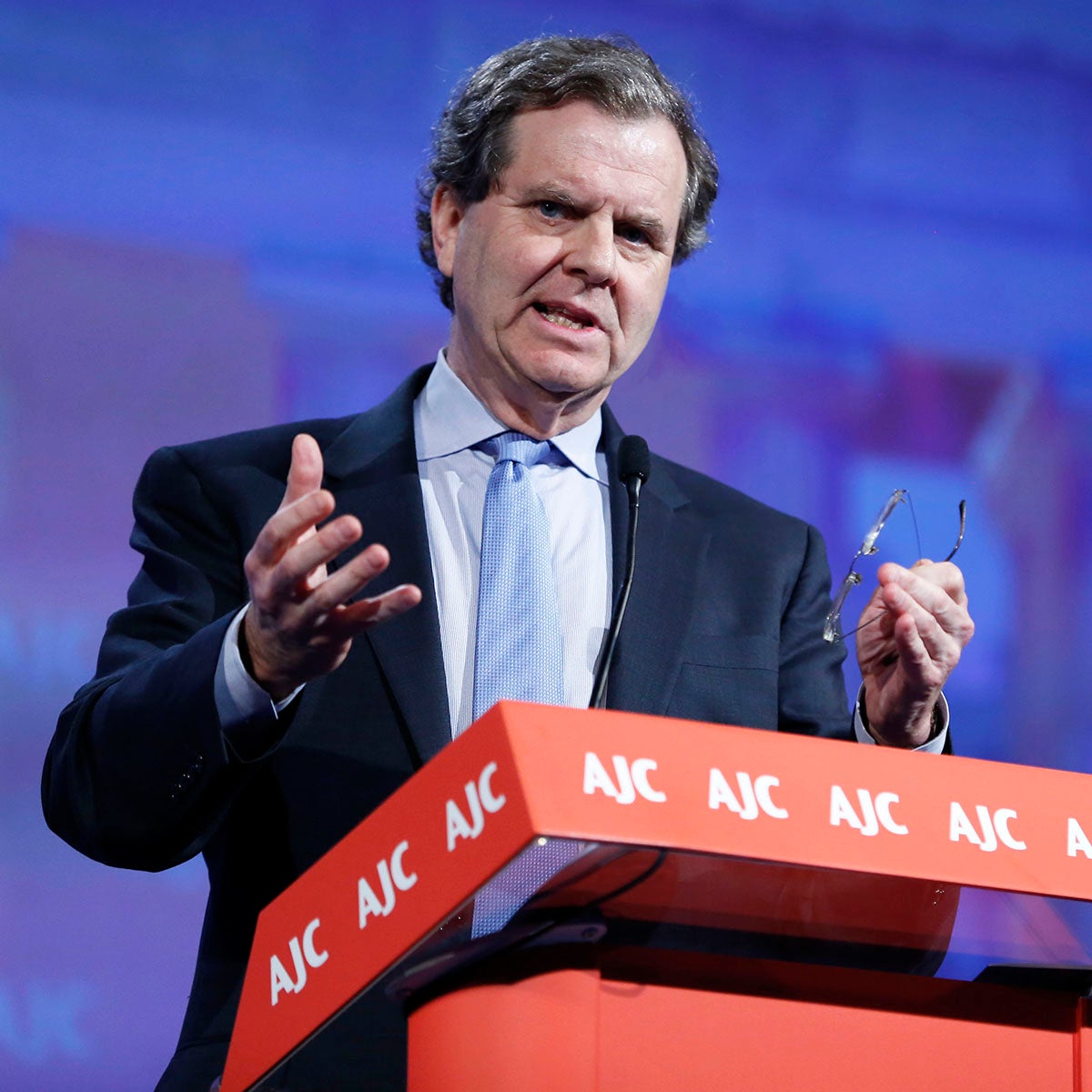November 22, 2016
In early 2009, shortly after President Barack Obama took office, one of the first issues his administration faced was what to do about U.S. participation in the so-called Durban II conference.
Washington decided to send a five-person delegation to Geneva to learn about the process on-the-ground and see if, after the disaster of the original Durban conference in 2001—which turned into an antisemitic and anti-Zionist hatefest—this one was also beyond repair.
An AJC colleague was invited to join the delegation, and we agreed to her participation. That was too much for several Obama-hating, fire-breathing Jewish columnists, who launched a frontal assault on AJC in the mainstream media, claiming we had betrayed core principles by cooperating with a "radical" (President Obama) who is "actively advancing the interests of Islamists." Moreover, we were also accused of seeking to kiss up to the new team, or as one of our critics crudely put it, "Having voted this man into power, the AJC now has its head up Obama’s backside while he lends legitimacy and strength to those who wish to destroy the Jewish state and the free world...."
While this tsunami of invective was being sent our way, the five-person delegation visited Geneva, made the rounds, and returned to Washington with the recommendation that the U.S. not participate in Durban II. And indeed, our government agreed. Together with nine other countries, America stayed away, refusing to lend legitimacy to what had clearly become an illegitimate exercise. And the Obama administration’s position was strengthened because it had undertaken its own investigation of the issue, which, in turn, encouraged several other nations to follow suit.
Had we listened to our ferocious critics, we would not have been at the table – and not have participated in the decision-making process that led to the American boycott of Durban II, which, in turn, rendered it a practically meaningless diplomatic exercise.
The visceral hatred by some of President Obama presumably resulted from issues like his long association with Reverend Jeremiah Wright, as well as with the likes of Rashid Khalidi and Bill Ayers. We weren’t oblivious to these relationships or their potential meaning, but we also understood, from long experience, that the totality of a presidency can be more than the sum of its various parts.
That’s why it’s important to give each president, however different they may be from one another, the chance to organize his own team, create a governing style, and allow a worldview to take shape, while knowing full well there may be certain statements, actions, and links that could generate deep concern and warrant close scrutiny.
This is the path that AJC has always taken, whoever the elected president has been. It reflects an approach that appears to be vanishing in today’s America – a truly centrist and independent stance.
We are not about political parties, but policies, including the protection of human dignity, defense of democratic values and pluralism, support for robust U.S. engagement with the world, and commitment to the U.S.-Israel special relationship. We are non-partisan not only because the law tells us that, as a 501(c)(3), we must be, but because our approach to policymaking – and the need to be able to talk to idea-generators and decision-makers, and not just to ourselves – requires us to be.
Today’s America has become frighteningly binary in its view of politics, with each camp increasingly living within its hermetically-sealed echo chambers. Those on the left and right rarely meet, much less interact civilly, yet the truth is that it’s precisely in the encounters between people of differing views that thoughtful policies can, at times, be forged and compromises reached.
Maybe it’s because I grew up in a home where the extreme excesses of both the right and left scarred my parents that I refuse to place blind trust in any one camp, as if it were the repository of absolute truth.
Maybe it’s because I’ve seen so many policy issues crying out for nuance, only to discover that the very word itself is seen as anathema by many, suggesting, as it does, subtlety and complexity.
Or maybe it’s because I was a high-school debater for four years that I came to understand there can be more than one thoughtful way of looking at some of the major policy issues before us, since we usually had no choice about which side of the argument we were assigned to defend.
So, for me, finding AJC was an intellectual and political lifeline. It doesn’t rush to judgment in every instance, doesn’t take each accusation at face value, doesn’t outsource analysis to others, and, in both deed and word, practices strict nonpartisanship.
Given the rarity of this approach, we’re now once again, as in the past, being assailed by those unable or unwilling to accept this operational philosophy.
Our goal is to work with each incoming administration as best we can. We have policy priorities that can’t be put on hold for four or eight years. And to advance these priorities, we need to be in touch with those officials who have a say in outcomes. At the same time, as an independent organization, we are not in anyone’s pocket, nor do we withhold criticism when we believe it’s warranted. And to be crystal-clear, in the case of any hint of stigmatization of a faith or ethnic group or an emerging “alt-right” movement, we have already spoken out, and will continue to do so as needed. For us, these are most assuredly red lines.
In today’s frenzied state of American politics, there are those who want us to declare war on the incoming Trump administration, and others who want us to accept at face value that everything will be hunky-dory. We’re proudly in neither camp.
Ah, the joys – and perils – of centrism!
This article was originally published by Times of Israel.



